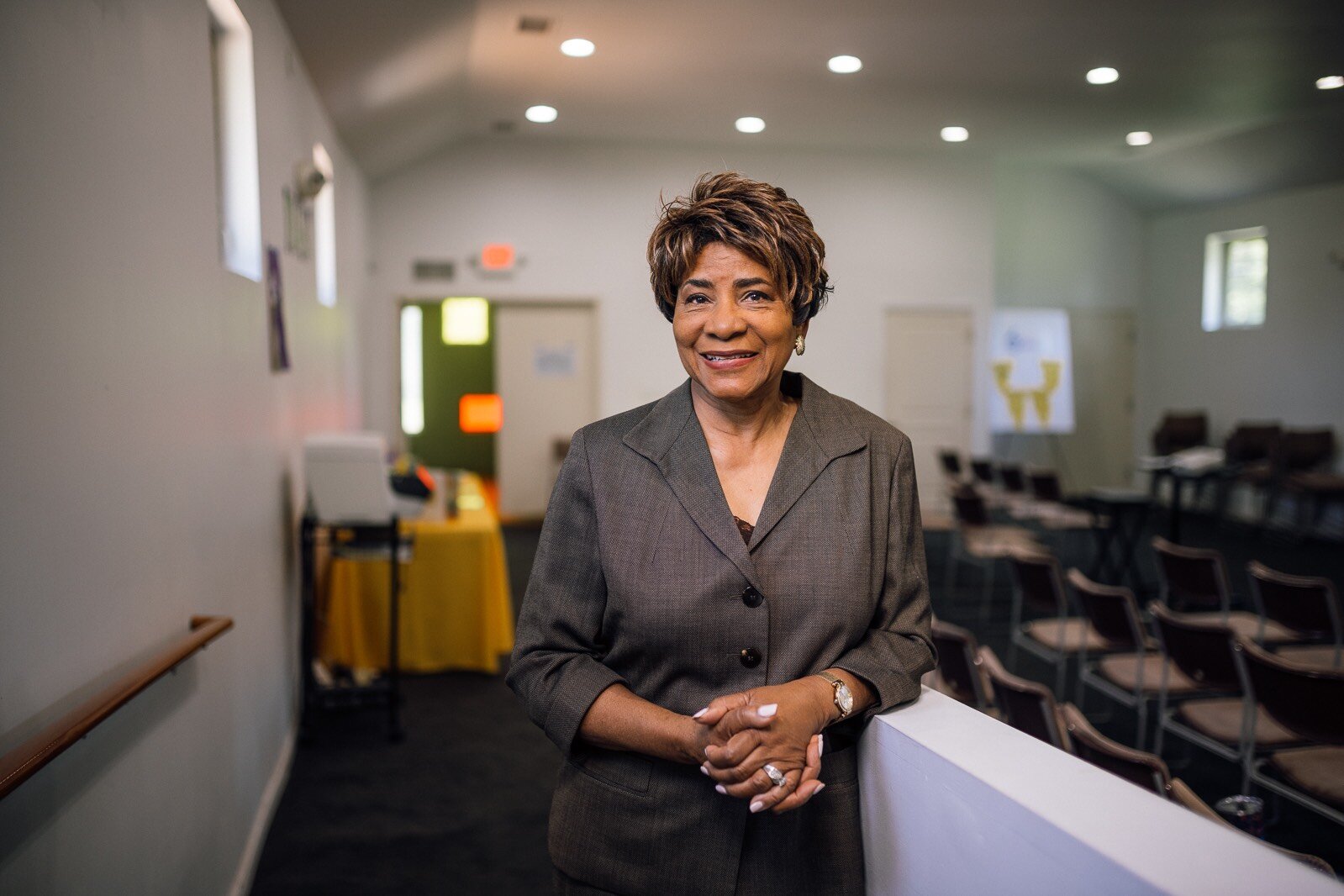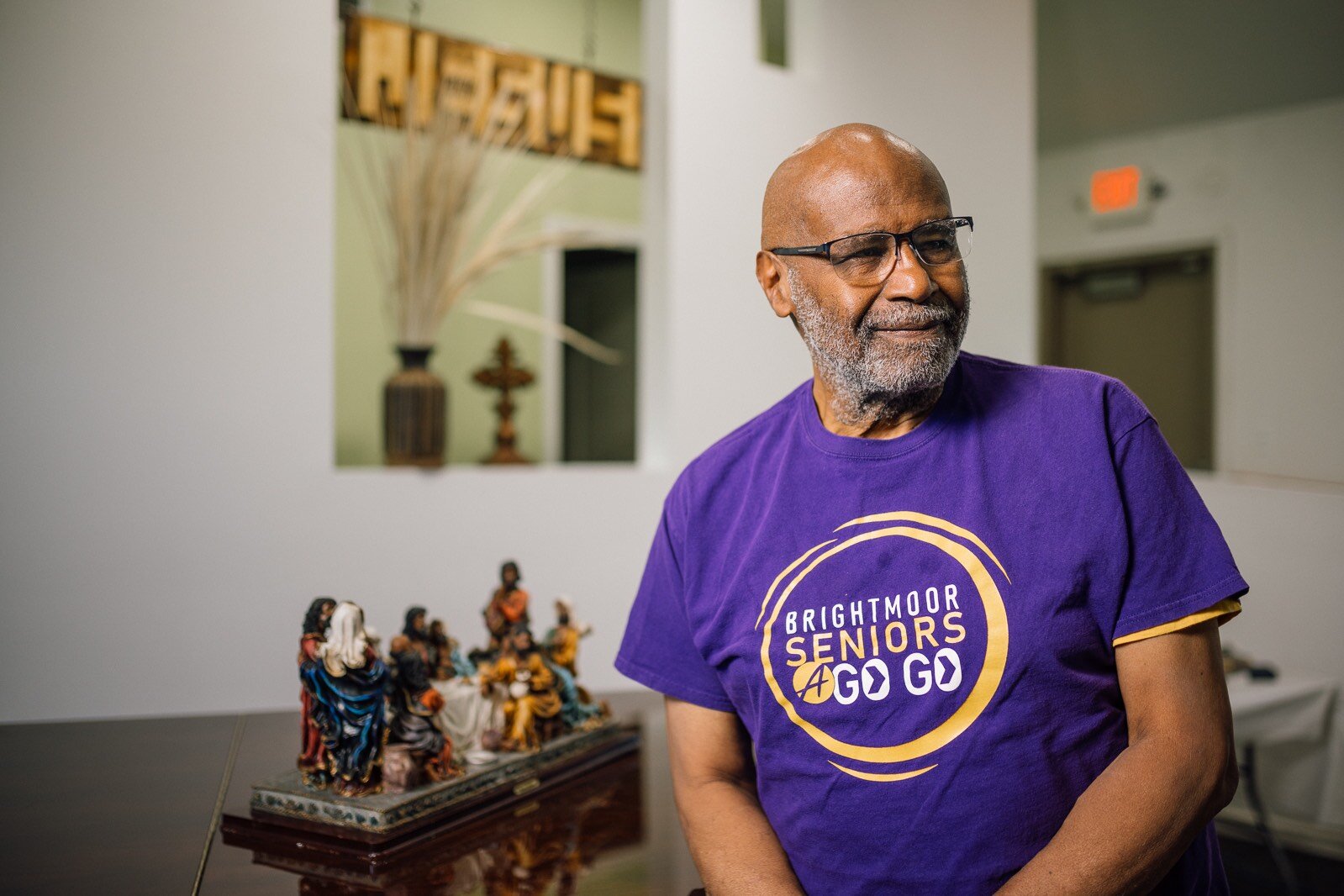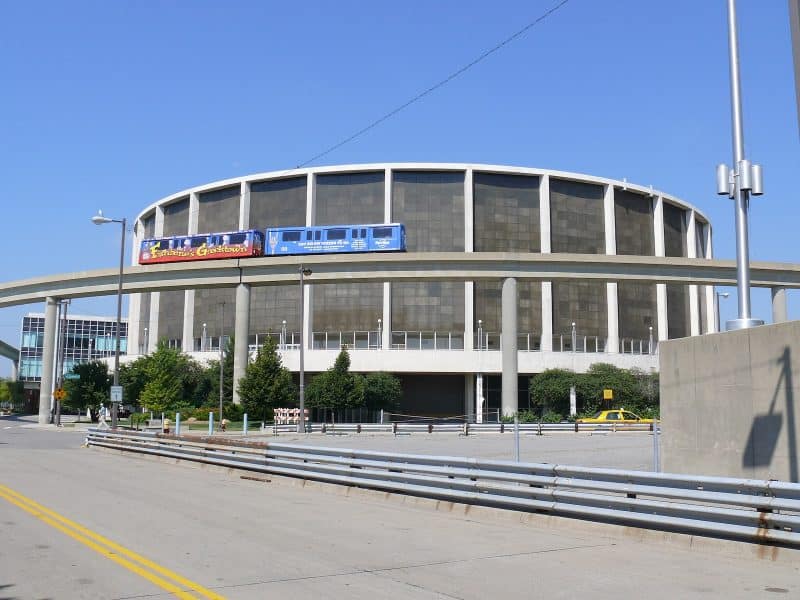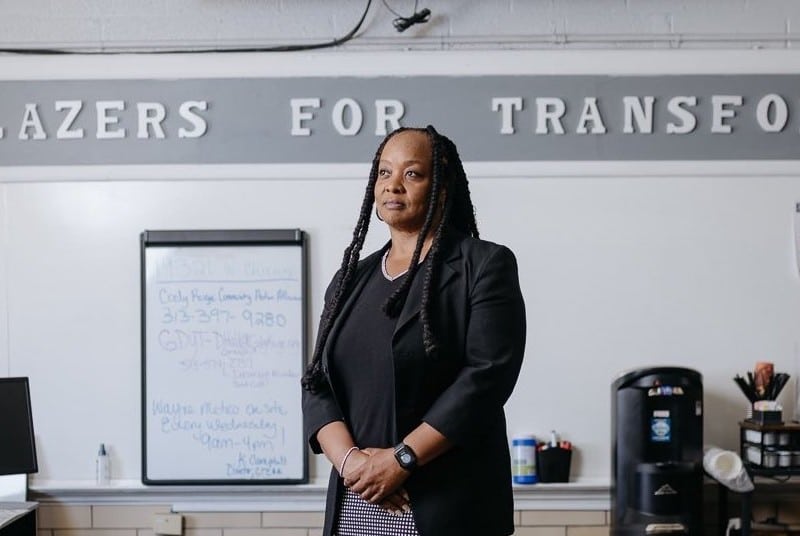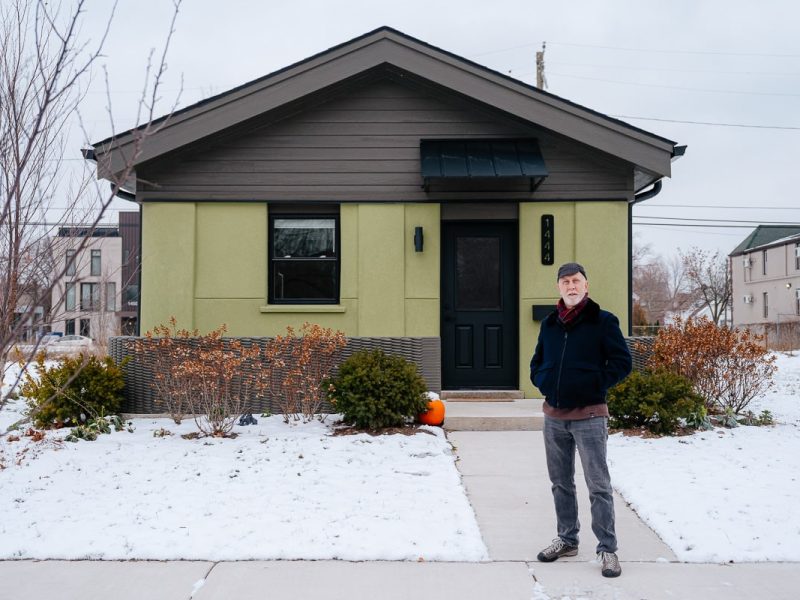Seniors A Go-Go keeps Brightmoor seniors engaged
Led by seniors, Detroit's Brightmoor neighborhood Seniors A Go-Go program is keeping seniors safe, active and connected — and, just as important, having fun.
In the Detroit neighborhood of Brightmoor, a group of pole dancing, crime-fighting, take-no-guff seniors believes their twilight years are for having fun, not sitting still.
Organizers started Seniors A Go-Go, a project of Brightmoor Alliance, a few years ago after a Brightmoor resident lost patience with community programs that only seemed to address the needs of younger neighborhood residents.
“One day, I just said, ‘It’s time for you to talk about the seniors,’” says Evadney Clark, whose gentle revolt sparked the conversations that led to the creation of Seniors A Go-Go. “We are here. We are alive. We need to belong somewhere.”
Now, a group of planners meets weekly to iron out the details of the program they’re building to engage and strengthen the 2,000-some seniors who live in Brightmoor.
The group plans outings, classes, and other senior-focused activities for the neighborhood and encourages seniors to show up and speak up at community meetings.
Such engagement empowers older people to continue adding their valuable voices to their community, says Rev. Larry Simmons, executive director of Brightmoor Alliance.
Seniors A Go-Go, led for and by seniors, fills a void for older folks who “don’t want to be locked up in their house all day,” says Clark, 79, who dreams of a life like that depicted in the TV series “The Golden Girls.” She applauds the group’s recognition of seniors as leaders who still have something to contribute and urges her peers to step up to that plate.
“If we don’t make a difference now,” she says, “What’s going to happen to the next group? They won’t have nowhere to go, and they won’t have nothing to do. That’s all I’m saying.”
‘A go-go group’
A Thome Aging Well grant awarded last year by Enterprise Community Partners, a national nonprofit that supports the work of community development organizations, gave legs to Clark’s call for more activity for her age group, says Jacqueline Ford-Brazzle, who heads up the senior program for Brightmoor Alliance.
In 2019, a team of eight started brainstorming how to increase senior activity options in Brightmoor. The result: Seniors A Go-Go. The group’s planning team, all seniors, have spent the last few years defining and improving the program, which currently lists about 60 active members.
The group books regular outings for its members, from group trips to senior-friendly expos in downtown Detroit to a spa day in June to longer expeditions out of state.
When planners could find no available tour buses for a recent outing, they rented their best available option: a party bus.
“You know, the kind with a pole,” says Ford-Brazzle.
When she got to the bus, she encountered the seniors merrily swinging on the pole.
“As you can see,” Ford-Brazzle says with a laugh, “We’re a go-go group.”
Seniors as planners and leaders
Entirely envisioned and led by people of retirement age and older, Seniors A Go-Go intentionally places seniors in leadership roles and teaches them the needed skills to flourish there.
“The older we get, the more invisible we become,” Simmons says. With the tools to speak up and confidence they will be heard, seniors rediscover their voice ― and use it, Simmons says.
Recently, the city asked residents to approve a project that would have impacted Brightmoor. “Seniors A Go-Go showed up and said, ‘Nope,’” pressing the city to provide more information, Simmons says.
At another meeting, seniors rallied to alert police to large piles of possibly illegal debris in the yard of a neighborhood home. Because the seniors believed in the power of their voices, police know about the problem and can do something about it.
“If that doesn’t happen, we will be putting on our shirts, making our signs, and marching in front of that mess,” says Simmons.
He sees Brightmoor seniors’ new invigoration in their camaraderie, their participation in community meetings, and their articulation of community needs.
Once, only two or three seniors might have said something about problems like debris piles. Now, seniors from all around the neighborhood are ready to stand up for their peers, so “the two who live there don’t have to fight alone,” he says.
Checking in, saving lives
Among older folks, connections can literally save lives, Simmons says.
He recalls an elderly Brightmoor woman who died in her home but wasn’t missed, or discovered, until five days later. Seniors too easily slip under the radar, Simmons says.
At a recent A Go-Go planning meeting, Simmons presented a phone tree for final approval. Everyone has time to call one or two people a week, just to see how they’re doing, he said.
“At least they won’t be left there to die,” one member said. “Alone. And nobody to come and check on them.”
Simmons describes an older man who used to walk his dog around the neighborhood. When the man didn’t show up for a few days, Simmons checked on him, only to discover the man had been targeted by local drug dealers who wanted him for his social security income.
The man’s daughter discovered his addiction and got him out of the drug house to which he had been lured. In the process, Simmons discovered the daughter’s kids had not been to school in years because their mother feared losing them if social services found out about an addiction in the family.
Now, Simmons reports, the drug house has been shut down and the family has been helped ― all because someone valued a senior citizen enough to check on him the way A Go-Go group members check on each other.
Time to live a good life
The recent dollars granted by Enterprise Community Partners helped planners turn their good ideas into a solid reality.
Some Thome grant funds pay for meals for the planning team. Good meals build bonds and tell team members their work is valued. “Giving them cold pizza and pop? No,” Simmons says.
The grant also pays for technology classes, movement therapy and the like for seniors and covers rent at local churches, which the group uses for meeting space instead of investing in a building of their own.
Two new part-time workers, funded by the grant with the jobs filled by seniors, will be trained to manage schedules, resolve conflict, write proposals, and otherwise take ownership so that, if and when grant money runs out, seniors will have the personal power to continue the program without current leaders.
Seniors’ voices are easily overlooked or ignored. Without them, though, “We lose our wisdom,” says Simmons. Communities that invest in, empower, and listen to their older adults gain decades of knowledge from people with time to attend meetings and a vested interest in their community.
In the last portion of their lives, people don’t want to sit in their homes and do nothing, Clark says. She wants, as many seniors want, to socialize, talk to people, voice opinions, “and get up and dance.”
“This is time for us to live,” she says. “Live. I mean live a good life.”
Resilient Neighborhoods is a reporting and engagement series examining how Detroit residents and community development organizations work together to strengthen local neighborhoods. It’s made possible with funding from The Kresge Foundation.

